Call me biased, but I would tell you that your thyroid is the most important endocrine gland in your body.
Not only does it interact with almost every single cell, it also regulates and controls critical processes like your weight and cholesterol levels.
But we are putting the cart before the horse.
If you are like most people, then it can be confusing trying to learn about your thyroid.
But today, we are going to make it simple and I’m going to explain how your thyroid works so that anyone can understand:
Thyroid Gland Basics
Thyroid problems can seem complex when you first look at them but they don’t have to be.
Your thyroid is a gland that sits at the base of your neck and it might be one of the most important (for its size) organs in your body.
Your thyroid gland produces two very important hormones known as T4 and T3 (Thyroxine and Triiodothyronine).
These hormones are released when triggered by precursor hormones from the brain (known as TSH).
These hormones then circulate around your entire body to just about every cell and trigger changes at the cellular level.
These changes result in the production of enzymes and other cellular triggers which help to increase your energy, control your weight, and many other important functions (more on that below).
What you may not realize is that your body is constantly monitoring changes in your stress level, food intake, and so on and each of these may change how much thyroid your body produces.
When your body gets the message that you are not consuming enough calories, for instance, it may make changes to how much thyroid hormone it wants your body to produce.
These small changes may result in big symptoms which may lead you to blog posts like this.
It can sometimes be difficult to diagnose thyroid problems because the symptoms can be all over the place.
Do you have dry skin? That could be a thyroid problem.
Do you have trouble losing weight? That could be a thyroid problem.
Are you losing your hair? That could be a thyroid problem.
Are you having trouble getting pregnant? That could be a thyroid problem.
You get the idea.
So what are you supposed to do?
One of the best things that you can do is take some time to learn the basics of your thyroid gland and how it works/functions.
10 Important Functions Your Thyroid Is Responsible For
With these basics under your belt let’s talk about the top #10 most important functions that your thyroid is responsible for.
Just realize as you read through this that these are NOT the only functions that your thyroid gland controls.
Each person, if they have thyroid problems, may present with slightly different symptoms.
But these 10 functions are most commonly affected by even small thyroid changes.
#1. Regulates Your Metabolism & Weight
The first, and perhaps most important, function of your thyroid gland has to do with your metabolism and your weight.
Things like breathing, sleeping, thinking, and so on.
You may not realize that your metabolism (your basal metabolic rate) is one of the most important aspects to measure when you are trying to lose weight.
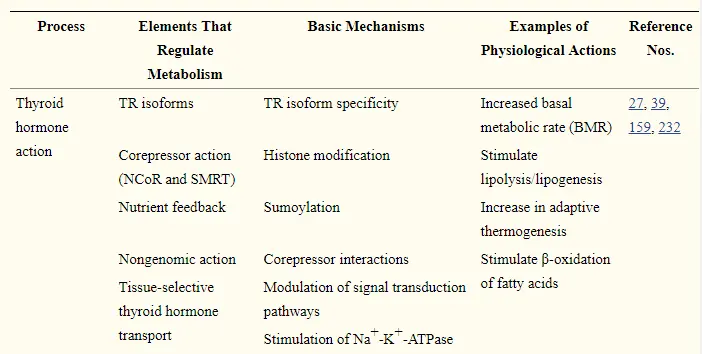
Why?
Because your metabolism is responsible for burning thousands of calories (up to 80% of your total daily calories) each and every day.
If you have too little thyroid hormone in your body then your metabolism will drop.
If you drop your metabolism by even 20% of normal that may count for up to 400 calories that you aren’t burning each and every day.
It’s easy to see how this can add up and lead to problems such as weight gain or difficulties with weight loss.
On the flip side, if you have an overactive thyroid (too much thyroid hormone) then your metabolism may actually increase!
A higher than normal metabolism often leads to weight loss (3) (a good thing for those who are overweight but a bad thing if you are a normal weight).
Some people believe (wrongly) that they can increase their thyroid dose to help with weight loss.
This dangerous type of therapy does not work well and generally does not help with weight loss.
If you are having issues with your weight or you feel that your metabolism isn’t quite what it used to be, then checking your thyroid function is a good next step.
#2. Controls Hair Growth
It surprises me to know that most patients are often more concerned about the quality and texture of their hair when compared to things like their energy or their weight.
Low amounts of thyroid hormone can lead to changes such as rapid hair loss, hair breakage and even thinning of the hair.
These changes are not taken well by patients and this will often lead people into my office.
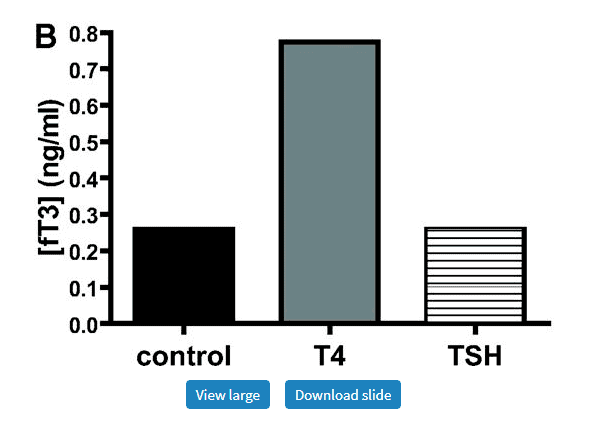
Even high amounts of thyroid hormone (such as seen in hyperthyroidism) can lead to dry, brittle hair and hair loss as well.
Just remember:
Your thyroid is one of many hormones responsible for hair growth so don’t jump to a thyroid problem if you have hair loss straight away.
One of the most common causes of hair loss is simply low iron or iron deficiency (5).
Another common cause of hair loss is related to estrogen deficiency in menopause.
If you are struggling with hair loss or dry, brittle hair then it may be a good idea to check your thyroid but just realize that hair loss can be related to more than just your thyroid.
#3. Controls Cellular Energy Production
T3 Thyroid hormone, predominately, plays an important role in regulating your subjective sense of energy.
And by energy, I mean how you are feeling when you wake up in the morning.
Do you have enough energy to wake up and get started with your day?
Are you able to get going without a cup of coffee?
Do you feel like you crash at midday?
Do you feel like it’s a struggle to focus on your work?
If you have issues with any of these then you may have an energy problem.
Thyroid hormones may help to regulate your energy by increasing certain enzymes in your mitochondria (6).
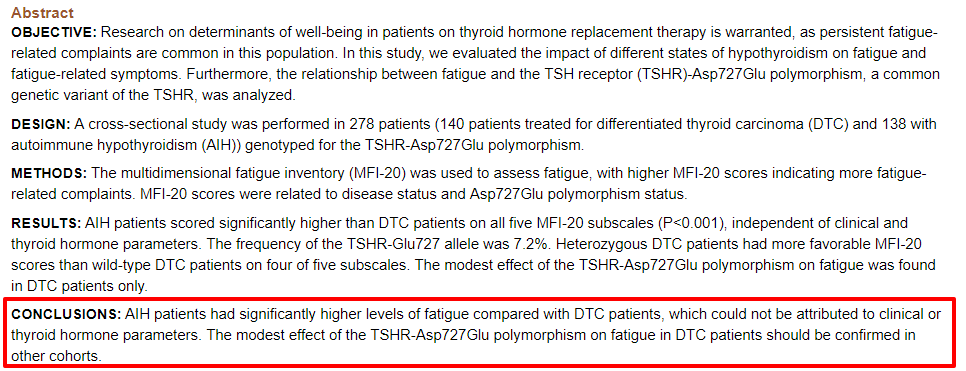
Your mitochondria are often referred to as the “powerhouse” of the cell and they produce the energy currency known as ATP.
Low levels of ATP may be one of the causes of this subjective feeling of low energy that many people suffer from.
In addition, it has been shown that certain genetic changes predispose patients to persistent fatigue even while taking thyroid medication.
Patients with the TSHR-Asp727Glu polymorphism (7) (found in around 7% of the population) have more profound fatigue when compared to those without it.
If you have this genetic defect you may need higher doses of thyroid medication to break through the resistance.
#4. Controlls Other Hormones
Your thyroid gland may be the “master hormone” in the sense that it controls many other hormones in your body.
Changes to your thyroid gland may cause a cascade of symptoms from other hormone imbalances.
We know, for instance, that your thyroid gland helps to regulate the following hormones: testosterone, estrogen, progesterone (8), and even cortisol (9).

What that means for you is that any change to circulating thyroid hormones may lead to changes in these other hormones.
Do you have low testosterone? Well, that may be the cause of low thyroid hormone (10).
Are you struggling with menstrual irregularities? That may be caused by low thyroid hormone (11).
The list goes on and on.
Because of these important interactions, it’s important to always look for the “root cause” and treat that if possible.
If you suffer from low testosterone related to low thyroid hormone then the answer is to fix the thyroid gland which will then fix the testosterone.
#5. Regulates Fertility
It’s right up there with obesity and diabetes and second to menstrual disorders (such as endometriosis).
This makes thyroid disease a serious, and often underappreciated, cause of infertility among women.
Many reproductive endocrinologist offices know this and will often give women who come in with fertility issues thyroid hormone medication.
In my experience, this tends to be true as well. I have found that many women become pregnant after optimizing their thyroid medication.
If you struggle with infertility don’t forget to evaluate your thyroid function or go to someone who can help adequately assess it.
#6. Regulates Mood
It isn’t well known how thyroid hormone regulates your mood but it is well established that it does.
Depression (and even anxiety) tend to be among the most common symptoms of thyroid disorders (14).
Depression tends to be seen in patients who have an underactive thyroid while anxiety tends to be more prevalent in patients who have an overactive thyroid.
But that pattern isn’t always set in stone.
I have definitely seen patients with low thyroid present with anxiety and depression or some mix of the two.
Generally, when you have depression/anxiety from your thyroid you also tend to have other symptoms as well (such as weight gain or fatigue) so don’t assume that all depression is thyroid-related.
#7. Manages Your Ability to Concentrate and Remain Focused
Beyond mood, your thyroid also helps to promote normal cognition or brain function.
People with this condition also say they have issues remaining focused, problems concentrating at work, and find themselves forgetting simple things.
This can be a big problem, especially for your career or work life.
The inability to remember important dates, especially in careers such as law, medicine, etc. can become a big problem.
I’ve had more than a few patients come to me with brain fog as their number #1 complaint only to find that it is related to their thyroid.
#8. Regulates Body Temperature
Your body temperature, also known as basal body temperature, is regulated by your thyroid gland.
Remember:
Thyroid hormone helps to increase ENERGY production.
When energy is consumed heat is released.
As heat is released your body temperature will increase (or stay at a normal level).
This is often an advanced feature that is only seen when patients are severely hypothyroid, but it’s often a good tool to test for because you can do it at home.
Purchasing a thermometer and checking your temperature first thing in the morning can be a useful proxy for thyroid function.
It’s obviously not as accurate as checking your thyroid lab tests but it’s a cheap and easy trick that you can take advantage of right away.
#9. Controls Heart Rate
Thyroid hormone also helps to regulate your heart rate through its influence on calcium channel pumps in your heart.
Your heart rate, like your body temperature, is another tool that you can easily check at home with simple tests such as a blood pressure monitor.
These monitors will often check both your blood pressure and your resting pulse.
Your pulse should be somewhere between 70-80 in the rested state.
If you have a heart rate that is in the 50s that may be a sign of a thyroid problem.
Much like testing your body temperature, this isn’t as accurate as testing for your blood levels, but it’s an easy tool and a relatively cheap test.
High levels of thyroid hormone (such as seen in hyperthyroidism or in excessive thyroid medication dosing) can cause the opposite effect and lead to an increased heart rate.
If you are taking thyroid medication and you find that your resting heart rate is in the 100s or 110s then that may be a sign you are taking too much thyroid hormone.
#10. Regulates The Menstrual Cycle
Lastly, your thyroid also helps to regulate the menstrual cycle in women.
The menstrual cycle is something that is highly regulated by many hormones including: FSH, LH, estradiol, and progesterone.
Thyroid hormone, as you already know, can influence both progesterone and estradiol which may alter the frequency and quality of your menstrual cycle.
Women with low thyroid function may present with anovulatory cycles (leading to infertility), delayed or prolonged menstrual cycles, or changes to their flow.
An increase in thyroid hormone often leads to rapid but very short menstrual cycles usually less than 20 days apart.
If you are suffering from menstrual issues or infertility then assessing your thyroid should be a top priority.
Types of Thyroid Problems
Hopefully, you’re beginning to get the idea that there are MANY things that can go wrong with your thyroid gland.
The good news is that some of the problems associated with your thyroid have no effect on thyroid hormone production.
What does that mean?
It means that even if you have a condition such as thyroid cancer or a thyroid nodule, there’s a low chance that it will interfere with thyroid function in your body.
That means you probably won’t have the symptoms we discussed above.
But, on the other hand, there are some conditions that primarily do alter your ability to produce thyroid hormone.
These conditions, such as Hashimoto’s thyroiditis, WILL cause symptoms.
To give you a better idea of what can go wrong with your thyroid I’ve included some of the most common problems below:
- Low thyroid production (known as hypothyroidism) – Very common with up to 10% of patients suffering from this condition
- High thyroid production (known as hyperthyroidism) – Not as common as hypothyroidism with an incidence of up to 1-2% of the population suffering from this disease (19)
- Thyroid nodules (usually these do not interfere with thyroid hormone production at all) – VERY common with up to 20% of the population having a thyroid nodule (20)
- Autoimmune disease where your own body attacks your thyroid gland (known as Hashimoto’s thyroiditis) – Somewhat common with up to 5% of patients suffering from this condition (21)
- Inflammation of the thyroid gland from infection, trauma or immune attack (known as Thyroiditis)
- Cancer of the thyroid gland (this type of issue usually does not interfere with thyroid hormone production) – Thyroid cancer is the most common cancer of the endocrine system but has a 5-year survival rate of around 97%
Figuring out what is wrong with your thyroid (if anything) is of utmost priority.
When you go to your Doctors office make sure you walk out with a diagnosis or at least an idea as to what is going on.
If you don’t then you may end up frustrated without any real clear idea of how to treat your issue.
Your Next Steps
So what should you do next after reading this article, especially if you suspect you have some sort of thyroid problem?
Your best bet is to follow the 6 steps listed below:
- #1. Go visit your doctor (try to find a doctor who specializes in thyroid disorders)
- #2. Get a complete thyroid lab panel (TSH, free T3, free T4, reverse T3, thyroid antibodies)
- #3. Determine what is wrong with your thyroid (do you have a sluggish thyroid or an overactive thyroid?)
- #4. Eat healthy, exercise, and reduce your stress
- #5. Consider using high-quality supplements to support thyroid function
- #6. Take thyroid medication (if necessary)
- #7. Get re-tested and monitor your symptoms to ensure that you are on the right track
These steps are designed to help get you started on the right track so you can get back to feeling healthy and back to normal.
Always remember that each person is unique and may present slightly differently so it’s difficult to fit everyone into a simple “treatment box” but using this approach should help.
Now I want to hear from you:
Do you suspect you have issues with your thyroid?
Are you experiencing symptoms associated with any of the 10 functions we discussed above?
Have you been tested for thyroid problems?
What, if anything, did your lab tests show?
Leave your comments below!
Scientific References
#1. https://www.ncbi.nlm.nih.gov/pmc/articles/PMC4044302/
#2. https://www.ncbi.nlm.nih.gov/pmc/articles/PMC4535334/
#3. https://www.ncbi.nlm.nih.gov/pubmed/711136
#4. https://www.ncbi.nlm.nih.gov/pubmed/10792210
#5. https://www.ncbi.nlm.nih.gov/pubmed/20888066
#6. https://www.ncbi.nlm.nih.gov/pubmed/11174855
#7. https://www.ncbi.nlm.nih.gov/pubmed/22989469
#8. https://www.ncbi.nlm.nih.gov/pubmed/9846161
#9. https://www.ncbi.nlm.nih.gov/pmc/articles/PMC3520819/
#10. https://www.ncbi.nlm.nih.gov/pubmed/15142373
#11. https://www.ncbi.nlm.nih.gov/pubmed/29517803
#12. https://www.ncbi.nlm.nih.gov/pmc/articles/PMC3136077/
#13. https://www.ncbi.nlm.nih.gov/pmc/articles/PMC3657979/
#14. https://www.ncbi.nlm.nih.gov/pmc/articles/PMC3246784/
#15. https://www.ncbi.nlm.nih.gov/pubmed/16483669
#16. https://www.ncbi.nlm.nih.gov/books/NBK285549/
#17. https://www.ncbi.nlm.nih.gov/pmc/articles/PMC4451242/
#18. https://www.ncbi.nlm.nih.gov/pubmed/9208039
#19. https://www.ncbi.nlm.nih.gov/books/NBK278986/
#20. https://www.ncbi.nlm.nih.gov/pubmed/19041821
#21. https://www.ncbi.nlm.nih.gov/pmc/articles/PMC3016247/
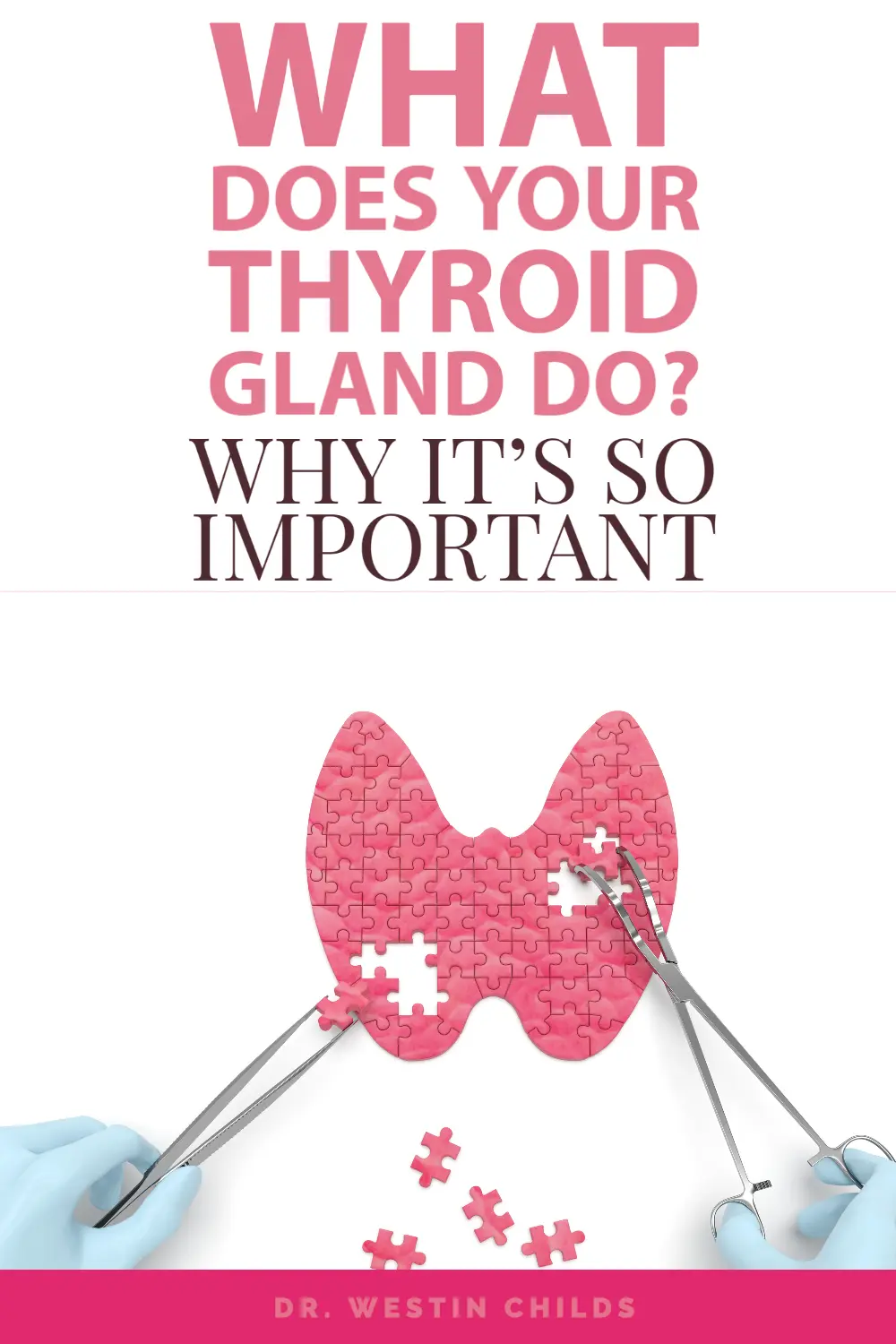
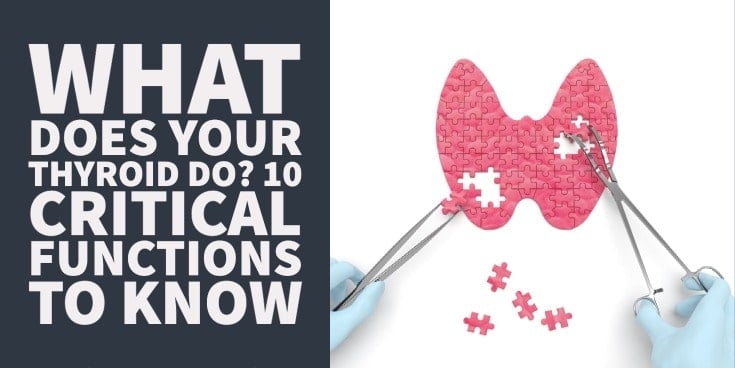
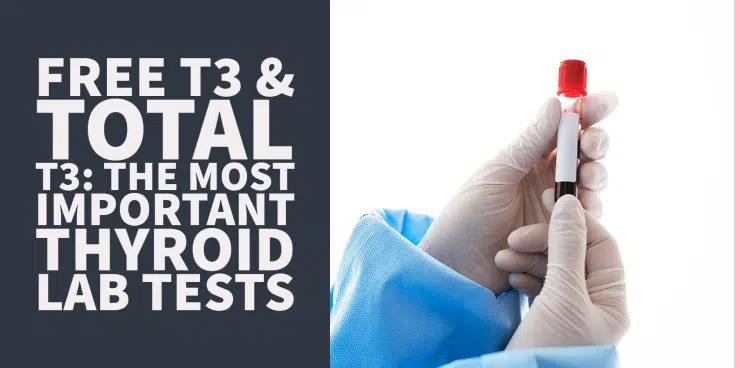
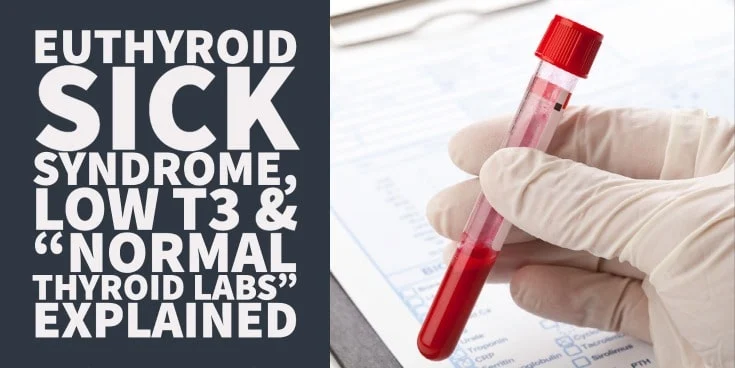
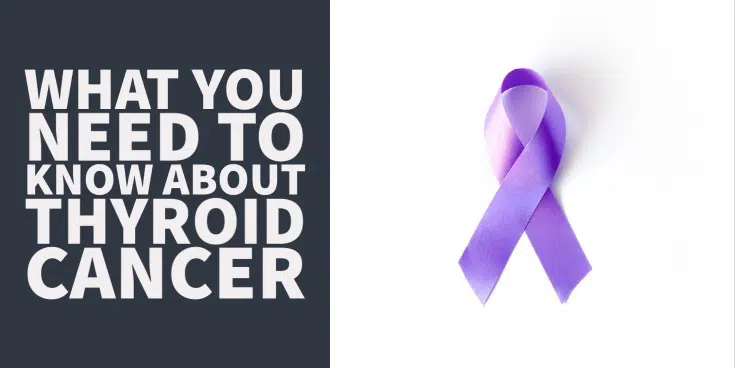
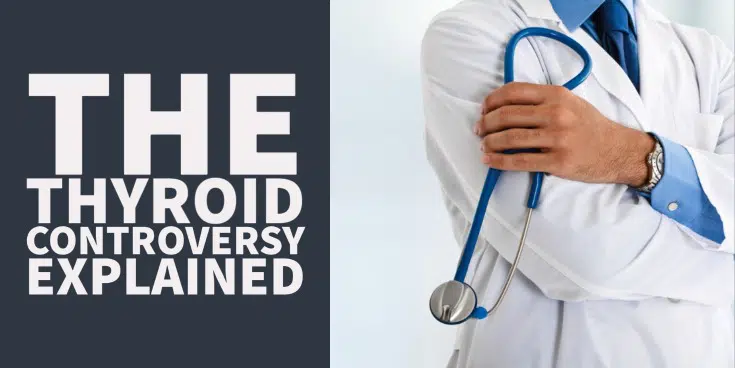
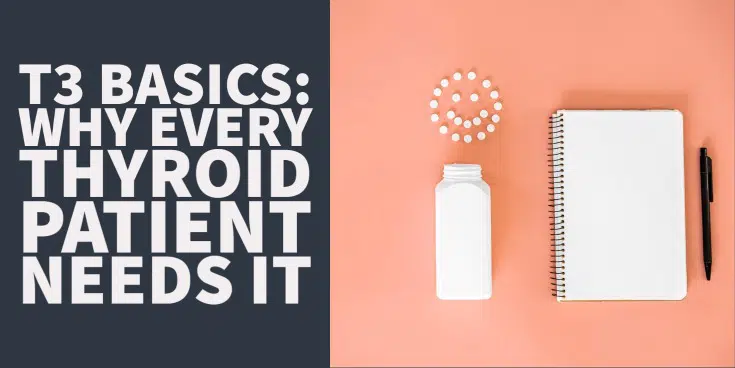
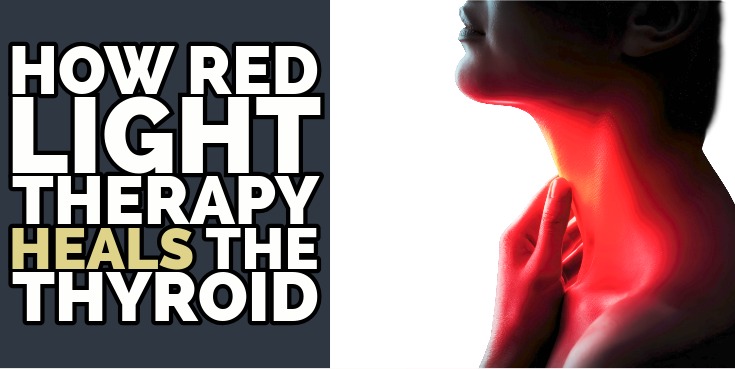

Is iodine good for the thyroid?
Hi Dante,
Yes! Iodine is great for the thyroid: https://www.restartmed.com/iodine-supplements/
I can say that I pretty much have all on the list (except menstrual & pregnancy issues). Have had a heart scan & stress test. Normal. Have had heat stroke once. I am highly intolerant of heat which is bad because I work out in it.
I was hospitalized with vomiting , a full body migraine, racing heart and it’s hyperthyroidism. Very high on all levels, yet to follow up on specifics.
In my research this is an organ that is highly sensitive to toxins and exposure to certain chemicals- industrial, agricultural, etc
I have a friend who reversed Graves disease with a grain free, gluten free paleo kind of diet – simple meat and vegetables.
After 7 years he could eat gluten without a return of the racing heart and other symptoms. An allergist told him that the mast cells live 7 years and it’s possible they mutated from exposure to the chemical solvents and now his body is producing healthy ones.
I healed my SLE with an autoimmune protocol (GAPS); I had 8of 11 criteria and now I have 0. However the doctor commented that my malar rash was glaring.
I recently started eating gluten and other not so great for me things, stress, moving into a new home with chemicals may have been my triggers? I will start with going back to my simple home cooked meals like I used to do.
What do you think about chemicals from these Home Depot made in China new construction triggering susceptible people ?
Hi Isabel,
The thyroid is a gland that is very sensitive to chemicals and other environmental triggers. These are known to both interfere with thyroid function directly and may lead to other issues such as Hashimoto’s thyroiditis. Whether that is the predominant cause of your condition is uncertain as that would require more investigative work. My best advice is to stay as far away as possible from any chemical that doesn’t belong in your body. If you do come into contact with these chemicals try to limit your exposure and use therapies such as those found here to help your body eliminate them as quickly as possible: https://www.restartmed.com/thyroid-detox/
Dr. Childs, I’m so excited to have found your site. I’ve suffered from many of the Thyroid issues for as long as I can remember. The biggest issue was the inability to go to the bathroom for weeks at a time, which of course lead to weight gain. I’m only 5’0, now in my mid fifties, and in menopause, it all became overwhelming. I saw my doctor, she had me do bloodwork, but my Thyroid numbers were in ‘normal’ range, so that was that. The inability to go to the bathroom, weight gain, difficulty going up and down stairs due to weight gain and low energy continued. My doctor suggested a weight loss program, and I took her advice, unfortunately it cost me over $300 per month. I did the program for 6 months – didn’t loose any weight, in fact gained. I quit the program, but not before seeing one of the doctors that I only saw once towards the end of my 6 months, who looked at my chart and noticed how low (although in range) my Thyroid numbers were. He suggested that I do their hormone replacement program, which would have been more money. Although I wasn’t interested in paying more money, I inquired more about the hormone therapy, what it entailed, what type of drugs they used in their program, what dosage they would start me on, … I was so excited about this new information. Thus, the research began. I read everything I could on the Thyroid. Instead of doing the hormone replacement program for more money, I went back to my doctor, who originally suggested I look into the weight loss program and shared everything they shared with me, what I’d read, and asked her to please put me on the medication. She was very hesitant because my blood work (TSH, T3 and T4) were all in ‘normal’ range, although very low. She had me redo my blood work, and started me on the lowest dose of the suggested medication. I pleaded with her to increase the dose, but she refused. She had me stay on the low dosage for 1 month, then redo the blood work. The numbers didn’t move. I pleaded with her to increase the dosage to less than the minimum dosage the weight loss program suggested. Again she was hesitant, but increased the dosage. It’s been less than a month, and I feel like I’m on the road to recovery after all of these years. My bowel movement, although not great yet, seem to be a little more frequent, I have enough energy to walk to work, and because I’m walking more, the weight is coming down – all of this in less than a month. My appetite is also seems to be doing something. I’m not as hungry…? At the end of this 30 day cycle of medication, I’ll do more blood work to see where my TSH, T3 and T4 levels are. I may ask my doctor to increase the dosage one more time, to what the weight loss program suggested, but then again, I may just see if things keep getting better on the lower dosage. I’m just so excited that I’ve finally seeing change, I don’t know what to do. I also appreciate my doctor for working with me. I wish I could get some of my weight loss money back, but even that was worth the cost of being pointed in the right direction. I’m looking forward to reading more of your Thyroid articles. They have helped me in my journey.
Hi Lisa,
Thanks for sharing your story. I would say there really isn’t a replacement for a competent thyroid doctor. You can learn more about how to find one here: https://www.restartmed.com/how-to-find-a-doctor-to-treat-your-thyroid/
Hello Dr. Childs, I have just recently found some of your videos and am excited to watch more. Thank you so much for sharing your knowledge. I have already learned so much. You may have a video on this and I just haven’t found it. I believe I have hypo thyroid. I lost the left side of my bang (hair) 3 months after having my son. He is now 20 years old and my hair in that spot has not came back, plus I’m losing a ton more. I only recently had my thyroid show up in my bloodwork (or had someone actually order the right tests) Among many other symptoms I am extremely fatigued and my digestion is terrible. My question is If I know I have poor digestion and I’ve been told to do a liver flush because it showed in my thermography report and I understand those are two reasons my conversion from T4 to T3 will not be good. What is the way to know if your thyroid organ itself is not producing a sufficient amount of T4, or if there are other issues with it too?
My T3 is low, which I am not surprised with all of my issues I have. I would just like to know if something is working right or if it is as I suspect and there are lots of problems all over. I have ordered T3 conversion, complete thyroid multivitamin, functional detox protein powder. (I hadn’t watched your supplement video before ordering) I should have ordered the adrenal and maybe not the multivitamin. Can I take the adrenal in addition to all the above, especially the multivitamin?
Hi DeAnn,
You can usually infer thyroid gland dysfunction based on the TSH and free thyroid hormone levels. The majority of thyroid disease is considered primary (meaning a problem with the thyroid gland itself) and not caused by other areas such as your pituitary gland or hypothalamus. You can assess the function of these organs if necessary but it’s not routinely done unless there is suspicion to believe your thyroid problem is not primary hypothyroidism.
And lastly, yes, you can use Thyroid Daily Essentials with T3 conversion booster and functional fuel DETOX. That won’t be an issue at all.
Is it true that thyroid production shuts down when you’re on your back?
Hi Stella,
Do you mean when you are laying on your back? If so, that is not true.
I had Graves’ disease which caused double vision, did the Tepezza treatment which helped my eyes from bulging but not the double vision. My Endocrinologist recommended having my thyroid removed, which has been done. Now I take one Levothyroxine 112 MCG tablet each morning an hour before eating. I have surgery scheduled in February to fix the muscles behind my left eye to correct my double vision.
Mostly, so glad to have all this info right here!
It’s too soon to have specific questions, just general ones. Here’s what’s happened:
In June 2022 I “complained” to my pcp about tiredness. She tested my thyroid levels, which were low, and put me on levothyroxin, 25 mcg. Since then I’ve had three follow-up tests, all showing my thyroid levels to be “right on.”
Now I’m grappling with the “side effects” of levothyroxin, the first has happened to me, the second and third not that I know:
1. An increase of cholesterol – mine shot up to where I should take statins.
2. Decrease in bone density by 7 – 9% is common. Don’t know if this has/will happen to me.
3. Increase in chance of all cancers by 50%. Not as bad as it sounds if the risk without is say 10%. Don’t know if this will happen to me. Sure hope not.
Had no luck with the one statin I was given – constipation, muscle soreness. Unfortuately, my wonderful MD of many years just retired and I won’t have another until April. Meanwhile, I’m trying to see if I can bring my cholesterol down with diet and exercise.
BUT it occurs to me that it would make more sense to do anything I can re: levothyroxin and my thyroid. After all, it’s further upstream than the cholesterol problem.
Question: Are there other thyroid meds that don’t have the
“side effects” of levothyroxin?
Thought: Maybe I’ll stop the levo and just be tired. I’m thin and don’t gain weight easily. Winter is my favorite season here in New Hampshire. My blood pressure is good – usually 125 over 80 or so. My heart rate is good I’m told – often in the 80s. Concentration OK for an 80-year-old. Breathing is mentioned – don’t know exactly what that means, but I’m a hiker and have no trouble there.
The only thing on the list of thyroid issues is that I do get tired, but I also do much more than many my age, and I worry about my hair, which is somewhat thinner, which is true for many women my age.
Only on-going health issues are lots of skin cancers. 50 years ago I had neuropathic pain, which is well controlled with activity (hiking, camping, snowshoeing, tobagganing, etc), meditation, and some Amitryptaline (the only medication I’ve ever taken until now). No other health problems.
Well any ideas on all this welcome. Thank you.
I wish I’d never mentioned to my pcp in June that I feel “tired.” Overall, seems I’d be better off just stopping the Levothyroxin. For now I’ll continue, do everything I can re: cholesterol control in the area of food and exercise, and when I see my new pcp in April will get blood tests to see where I stand with cholesterol and thyroid level.
Hi Candace,
All thyroid medications carry with them the potential for side effects but those side effects are almost always related to the dosing and not the medication itself (with few exceptions). There’s always some combination of thyroid medications that work for each individual but it can be difficult and time-consuming going through the various options to get there: https://www.restartmed.com/how-to-optimize-thyroid-medication/
I have a project for school and you have done this sooo good.
Thank u and wich u all the best!!!!
Hi Leona,
Glad you found it helpful!
Hello
I just stumbled onto your site. I had Graves Disease in 1996 and had the I-131 treatment done
I got very sick after the treatment and of course became hypothyroid. I’ve been on thyroid medication since then. Through the years my medication has had to be adjusted.
I’ve just had blood work done my T4’s were fine my TSH was .133 and my T3’s were not checked. The doctor doesn’t want to do anything now and retest in 6 weeks
I’m 70 years old overweight and also have fibromyalgia so it’s difficult to recognize which function is causes symptoms
Can you give me your thoughts about what my next step should be ? This is my primary doing the tests. I’d really like to see an Endocrinologist.
Your thoughts?
Lauren
Hi Lauren,
I would recommend looking into the treatments listed on this page: https://www.restartmed.com/hypothyroidism-chronic-pain/
In regards to testing, you’ll want to get those listed here: https://www.restartmed.com/normal-thyroid-levels/
Dear Dr. Chris;
My doctors are confused with my case. My T3, T4 and so on is tested every 2 months. My levels are too high, then too low. Following is happening:
Hair loss and thinning. I am losing my hair severely. It thinned and is not growing back. I’m not only talking about just head hair, I have no body hair. My eye brows are falling out too. Clumps of hair loss. This has been going on for years and getting worse. I haven’t shaved in years.
Weight: this is a huge problem. At first I kept gaining weight. I ate healthy and didn’t matter. 20 years plus gaining and couldn’t lose. This lead to mental issues and I became bulimic. Not only did I not lose weight, I ended up not being able to stop throwing up. Went to therapy. So I was 180 lbs over weight. I was told to get weight loss surgery. I got the Sleeve. Lost about 40. Then another 40, but at that point my hair started falling out. Then I stopped losing weight. Then I gained weight, 65 lbs. remember, I’m still throwing up everyday after every meal. No control. Since January to May I lost 65 lbs. everyday I’m losing 1-2 lbs. it’s not stopping. I had blood work done and my thyroid tests come back and my numbers are going up and down. I’ve been on Levothyroxine for over a year. I get blood work every 2 months. Numbers are up and down. First I’m hypo, then hyper. Can not get it right. Right now I’m on 100 mg of Levthyroxine on Tuesday and Thursday and Saturday. On sun, Monday, wed, Friday I’m on 112 mg. Still not level. It’s a mess.
Other symptoms:1. can not focus or concentrate. I can not think straight and can not focus at all.
2. Severe Anxiety
3. Mood changes and even to where I’m flat. I’ve always been depressed but this is bad. I’m on Meds
4. Always tired. No energy. I crash everyday. I can not do anything. I go to the store, I’m exhausted. I get dizzy and height headed.
5; rapid heart. Goes too high then too low and back up to too. Had a stress test and echo, nothing wrong with my heart
6. Same with Blood pressure
7. I never had a Temp problem before. Now, as my weight keeps going down. I’m freezing all the time and I live in Las Vegas.
8. Iron Deficiency anemic
9. Troubles now: My throat started feeling bad. My saliva dried up. I have none. Very dry.
Trouble swallowing. All day, every day.
Voice cracks and is groggy now
Effecting my breathing and pressure in throat.
I had thyroid ultra sound, CT and swallow test with Barium. Found 4 growths in my thyroid. 5 nodules. They are growing. I had a biopsy done 2 weeks ago, the doctor is concerned about cancer. I’m getting results today.
This is a nightmare. All this is out of control and I’m so depressed and just tired of all of this. My thyroid doctor said I have a lumpy throat. So if anybody doesn’t think the thyroid is important they need to rethink it. Sorry so long, I just want people to be aware. My doctors are so baffled how it goes up and down rapidly and severely. Please get checked everyone. Thank you for listening.
Hi, I left a comment and I apologize, I misspelled your name, I’m so sorry. I have a visual impairment and going blind, I wrote Dr. CHRIS, I MEANT Dr. Westin Childs.